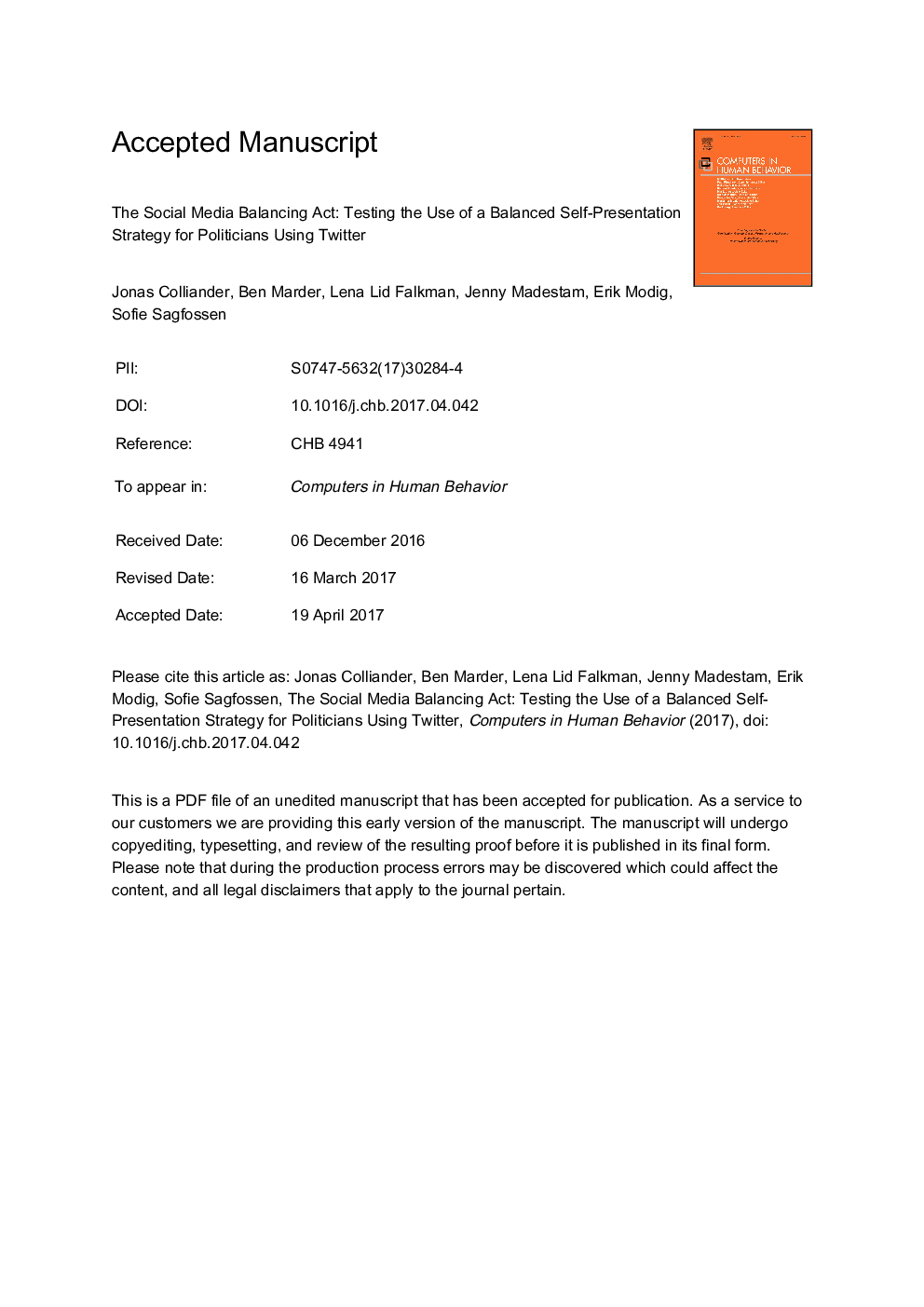| Article ID | Journal | Published Year | Pages | File Type |
|---|---|---|---|---|
| 4937256 | Computers in Human Behavior | 2017 | 36 Pages |
Abstract
Politicians' clear separation between their professional and private lives has been challenged by a growing need to be seen as personable, especially on social media where this is the norm. Little, however, is known about the effect on a political party when its politicians reveal aspects of their private lives on social media. The present study addresses this question. Through the lens of self-presentation theory, we are the first to test the effect of a balanced presentation strategy on Twitter (i.e., tweets that involve both professional and private aspects of their lives) as opposed to a strictly professional one. A longitudinal design was adopted with 265 Twitter users as participants. The results showed that a balanced strategy increased both interest in the politician's party and intention to vote for that party, irrespective of a user's political interest, social media usage intensity, or age, or the gender of either the user or the communicating politician. Furthermore, liking the tweets emerged as a crucial mediator. This study contributes valuable knowledge on self-presentation strategies of politicians specifically, and more broadly regarding self-presentation in the face of context collapse. However we call for future research to validate our experimental findings in a real-life setting. Implications are provided for political parties and others.
Related Topics
Physical Sciences and Engineering
Computer Science
Computer Science Applications
Authors
Jonas Ph.D., Ben Marder, Lena Lid Falkman, Jenny Madestam, Erik Modig, Sofie Sagfossen,
